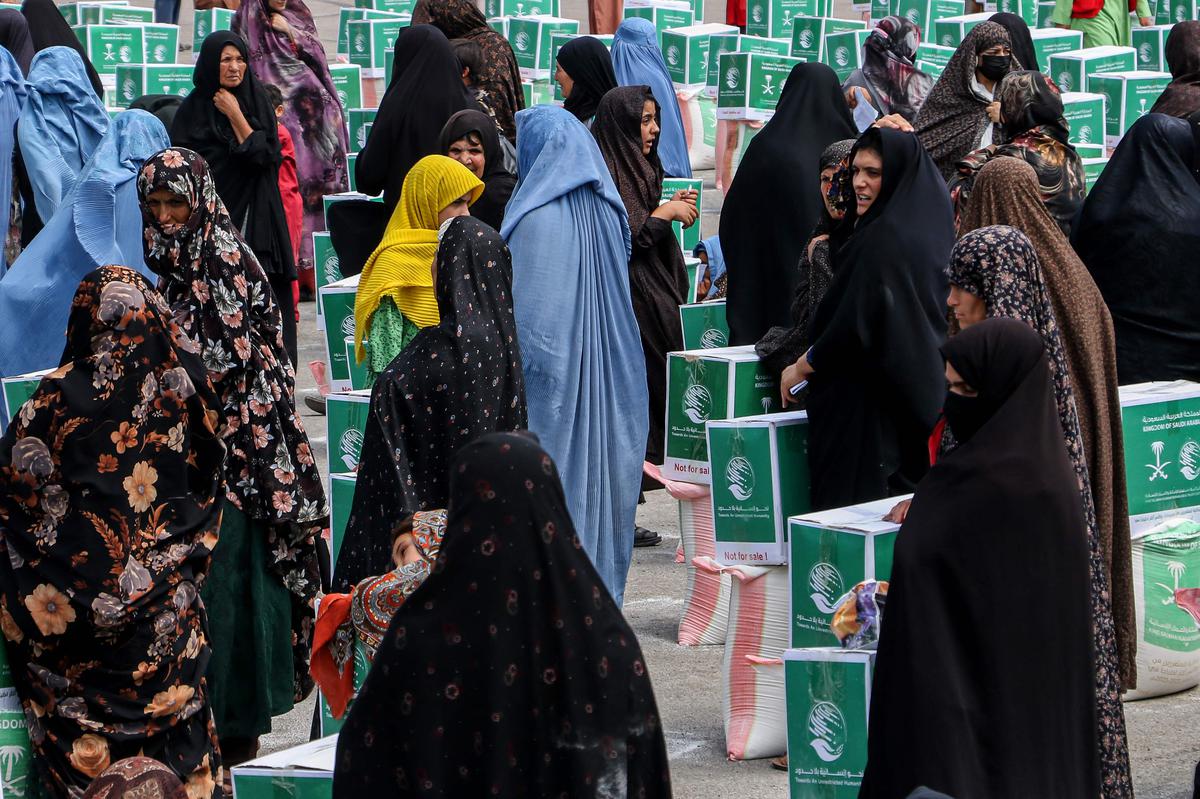Afghan Supreme Leader Highlights Women’s Liberation Under Taliban Rule
In a statement released on Sunday, Afghanistan’s supreme leader, Hibatullah Akhundzada, asserted that the adoption of Islamic governance in the country has led to the liberation of women from “traditional oppressions.” He emphasized that women’s status has been restored as “free and dignified human beings” under the new order.
Hibatullah Akhundzada, who primarily governs from the Taliban’s birthplace in Kandahar and rarely appears in public, made these remarks in commemoration of the Eid al-Adha holiday. He highlighted the measures taken to ensure that women are provided with a “comfortable and prosperous life in accordance with Islamic Sharia.”
The statement comes amid international concerns and debates surrounding the rights and freedoms of women in Afghanistan. The United Nations recently expressed “deep concern” over reports of women being deprived of their rights in the country. The Taliban’s approach to women’s rights and their role in society has been a subject of scrutiny and apprehension.
According to the supreme leader’s statement, the Taliban maintains that its governance adheres to Islamic principles and aims to protect the rights and dignity of women. While the statement portrays a positive narrative of women’s liberation, it is essential to consider the perspectives and experiences of Afghan women themselves, as well as the broader context in which these claims are made.
The evolving situation in Afghanistan has drawn international attention, with concerns about the potential rollback of progress made in women’s rights and gender equality over the past two decades. As Afghanistan moves forward, it will be crucial to ensure that women’s voices are heard, their rights are safeguarded, and their full participation in society is promoted.
The international community, including human rights organizations and diplomatic entities, will continue to closely monitor the developments in Afghanistan and advocate for the protection and empowerment of women. Balancing cultural and religious norms with fundamental human rights and promoting gender equality will be key challenges for the country’s leadership in the pursuit of a just and inclusive society.
In conclusion, while the Afghan supreme leader’s statement asserts that women in Afghanistan have been “saved from traditional oppressions” under Taliban rule, it is important to consider multiple perspectives and ongoing discussions surrounding women’s rights in the country. The situation remains complex and dynamic, requiring ongoing efforts to ensure the protection, empowerment, and full participation of Afghan women in all aspects of society.

